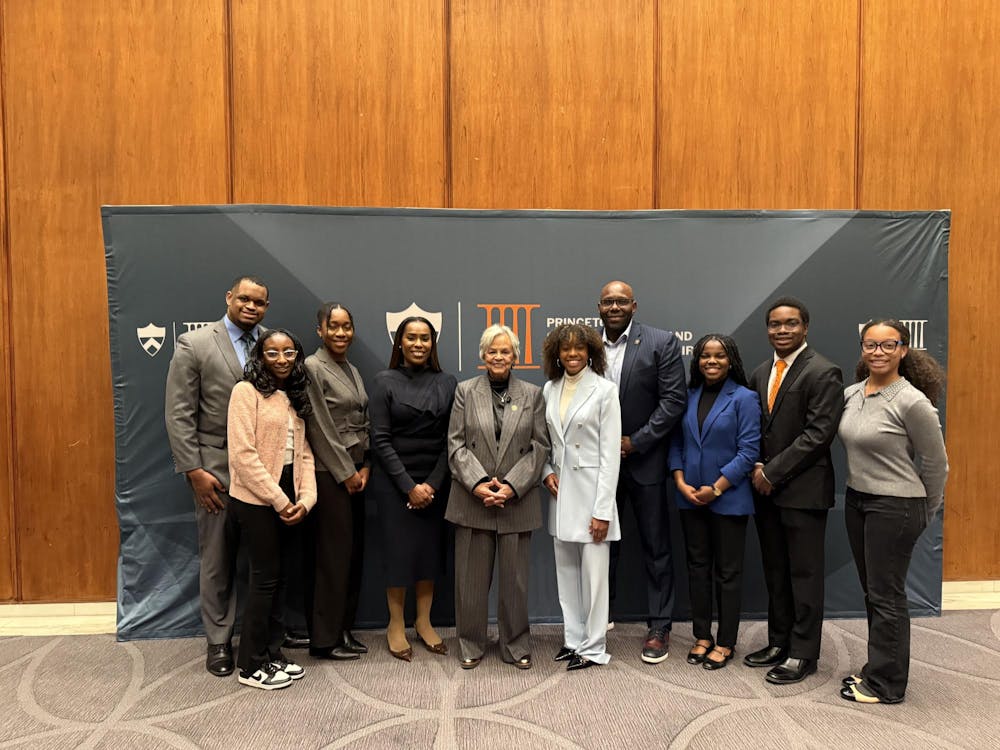Actor Danny Glover - most famous for his role in the Lethal Weapon movie series - spoke against the death penalty in a packed McCosh 50 last night.
Glover said in many cases innocent men are sentenced to death. Since 1976 - the year the Supreme Court lifted the ban on executions - 98 of 741 death-row inmates have been released after new evidence demonstrated their innocence, he noted.
He likened the death penalty to a consumer product that results in death one out of every seven uses. He argued that such a product, whether it was a car or a pill, would be off the market immediately. However, "the death penalty is still on the market," he said.
Glover said he believes racial bias to be responsible for the execution of a disproportionate number of African Americans. While 43 percent of executed prisoners were black, African Americans compose only 12 percent of the national population.
The future may be brighter, however, Glover noted.
"I think the tide is turning," he said, citing rising sentiment against execution of mentally-retarded and juvenile offenders. Fifteen states have banned the execution of people who commit crimes as juveniles.
"But now we face a new and profound challenge," Glover said, as he turned his attention to the effects of Sept. 11 on the anti-death penalty and social justice movements.
"When we fear, we clamp down on those who do not think like us or who do not look like us," he said.

In an interview before his speech, Glover offered some insights into his political activism.
"There's a history of political activism in my family," Glover said, explaining that his parents were active in the NAACP and organizers of a local union of United States postal workers.
Glover said that he became active when he was a student at San Francisco State University in the late 1960s. Celebrities are often criticized for using their fame to further political opinions. Glover rejected this criticism: "I'm a citizen with an opinion. The fact that I'm someone who is visible by virtue of the fact that people see me on television does not absolve me of my right to talk about issues that I think are important," he said.
At the end of Glover's speech, an audience member questioned whether racism was involved in the death penalty, stating that blacks commit more homicides than whites. He asserted that black leaders like Glover should focus on fixing their communities and not blame racism for their problems.

Although he began to respond calmly - emphasizing the importance of history in the marginalization of blacks - Glover became more animated when the audience member accused him of playing the victim.
"I live in a racist country," he said. "I'm not a victim, I'm dealing with it."
Despite his willingness to discuss his opinions, Glover said he has no desire to seek political office.
Glover said he sees the undergraduate experience as a unique opportunity for students to become familiar with important issues.
"Here is where students are able to hone their thoughts about the issues," he said. "In a way this is a very idealistic time for students. They are not only immersed in the studies but they can also find ways in which they can test the theories with practice by being involved not only on campus but linking that campus and its activities to a broader community."
Glover's lecture was organized by the Mercer County and University chapters of Amnesty International and New Jerseyans for a Death Penalty Moratorium Princeton Amnesty International president Christina Alvarez '03 said she saw the night as a success. "We got a little off topic, but it was still a productive dialogue," she said.







